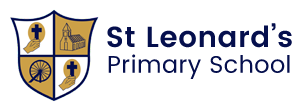In this section of the website, you will find information about our approach to teaching Geography at St Leonard’s.
At St Leonard’s Catholic Primary School, we intend to inspire in pupils a curiosity and fascination about the world and its people that will remain with them for the rest of their lives. We equip children with geographical skills to develop their knowledge through studying places, people and natural and human environments. This seeks to deepen the understanding of the Earth’s human and physical forms and processes. We also intend for children to develop geographical skills: collecting and analysing data; using maps, globes, aerial photographs and digital mapping to name and identify countries, continents and oceans; and communicating information in a variety of ways. The curriculum is designed to develop knowledge and skills that are progressive, as well as transferable, allowing the children to build upon their growing knowledge of the world to help them to deepen their understanding of the interaction between physical and human processes. Through our teaching, we intend to provoke thought, questions and to encourage children to discover answers to their own questions through exploration and research to enable them to gain a greater understanding and knowledge of the world and their place in it. Our curriculum is designed to give the children a seamless transition to the KS3 curriculum as the design of our primary curriculum was designed alongside our secondary colleagues within our Trust. Progression is planned out throughout the whole school ensuring all skills and knowledge is covered and progression is built into all planning. EYFS is the start of the children’s journey as a geographer where they learn about similarities and differences in relation to places, objects, materials and living things. They talk about the features of their own immediate environment and how environments might vary from one another. The progression continues through each year group allowing prior knowledge and skills to be built upon and developed. Key knowledge and skills for each topic are identified in planning to ensure progression across topics throughout each year group across the school. The local area is fully utilised to achieve the desired outcomes, with extensive opportunities for learning outside the classroom embedded in practice. This allows the children to give them a sense of place in their own locality in KS1 which is then developed into a more global sense throughout KS2. For example, using the local area to follow and create maps in Key Stage 1, to comparing the similarities and differences in environments and communities in Lower Key Stage 2, through to debating world issues on pollution in Upper Key Stage 2. We believe our children will:


